Five years after Notre Dame, the historic medieval cathedral in Paris caught fire, National Geographic has revealed images and videos of its stunning restoration.
On April 15, 2019, a fire broke out in the cathedral and spread rapidly, burning for nearly 15 hours. During the inferno, the cathedral's 18th-century spire collapsed, the roof—constructed largely of lead-covered timber—was destroyed, and sections of the vaulted ceiling were severely damaged as burning debris fell.
After the fire, French President Emmanuel Macron pledged to rebuild the cathedral.
"We will rebuild the cathedral even more beautifully and I want it to be finished within five years," Macron said in a statement from the Elysee Palace at the time. "And we can do it."
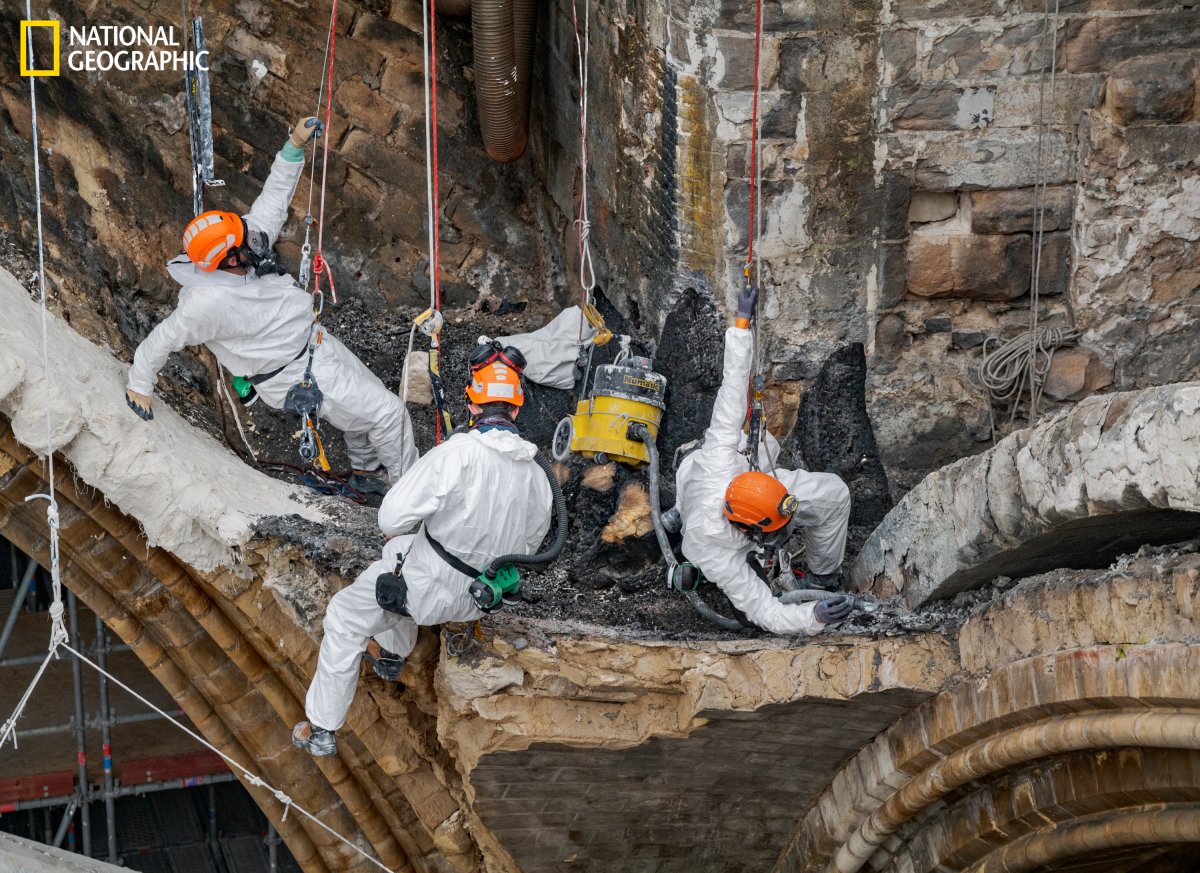
The newly refurbished cathedral will reopen on December 8 after a five-year restoration effort. It can now be seen in brand-new pictures and videos captured by NatGeo's photographer Tomas van Houtryve.
These images reveal the damage still present in the Notre Dame worksite in 2022, compared to the newly restored cathedral in 2024.
With a distinctive French Gothic style, the Notre Dame took nearly 200 years to build. Beginning in 1163, during the reign of King Louis VII, construction lasted until 1345. Based on the Ile de la Cite, a small island in the Seine River, the cathedral's foundation stone was laid by Pope Alexander III.
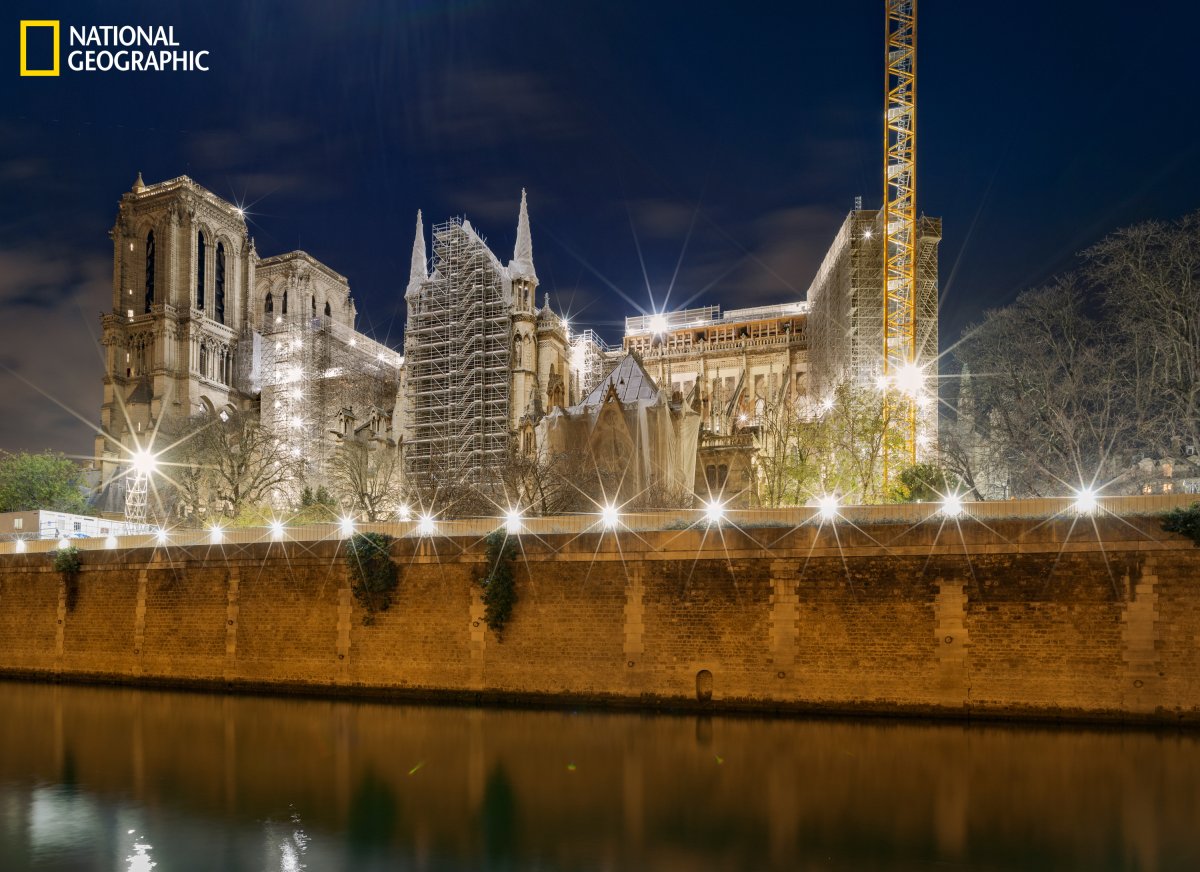
The cathedral has served as the venue for iconic events over the years, including the 1431 crowning of Henry VI and the coronation of Napoleon Bonaparte in 1804.
In 1831, author Victor Hugo published his landmark novel, The Hunchback of Notre Dame, which is said to have prompted a restoration of the spire, statuary, and stained glass. In 2013, as part of the 850th anniversary celebrations, new bells were installed in the cathedral's North Tower.
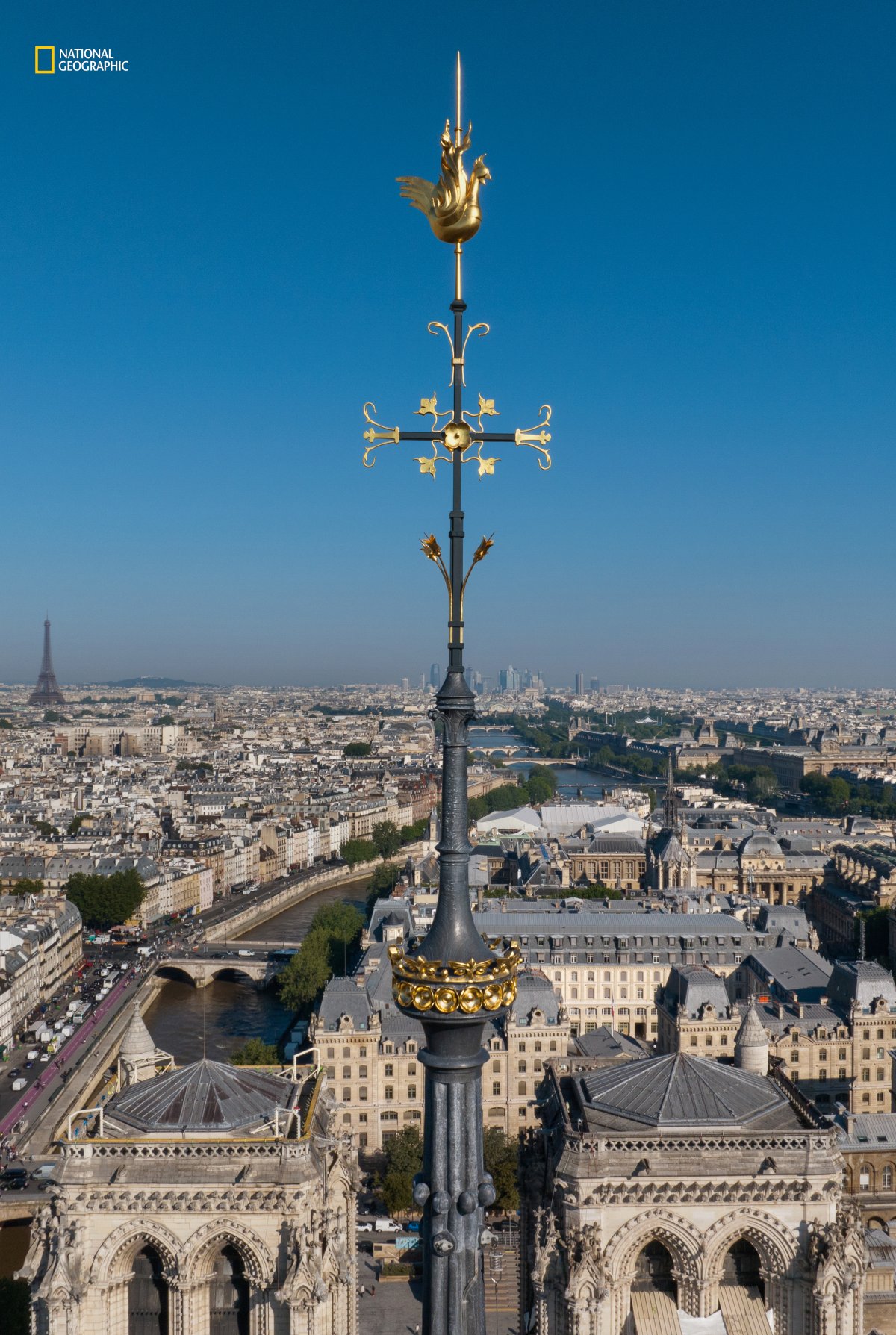
The 2019 fire broke out around 6:50 p.m. local time in the attic beneath the cathedral's roof, an area known as "the forest" due to its dense wooden framework constructed from centuries-old oak beams. The flames spread quickly, fueled by the dry wood and the height of the structure, which made firefighting efforts challenging.
The inferno led to concerns about the invaluable artwork in the cathedral. Notre Dame's priceless artifacts included much of the building itself, such as its famous gargoyles, the South Rose stained glass window, and its grand organ complete with 8,000 pipes.
It was also the home to Christian relics, such as part of Jesus' Crown of Thorns and a piece of the cross he was crucified on. There were also dozens of artworks and sculptures, such as a Madonna and Child from the 14th century, placed throughout the cathedral. Shortly before the fire, more than a dozen statues were removed for scheduled cleaning and restoration and thus escaped getting damaged in the fire.
Thanks to the efforts of the firefighters, the main stone structure, including the bell towers, façade, and many of the stained-glass windows, was preserved.
Some of the first responders were tasked with recovering as much art as possible when they arrived on the scene in 2019. It has been reported that most of the artworks have been saved.
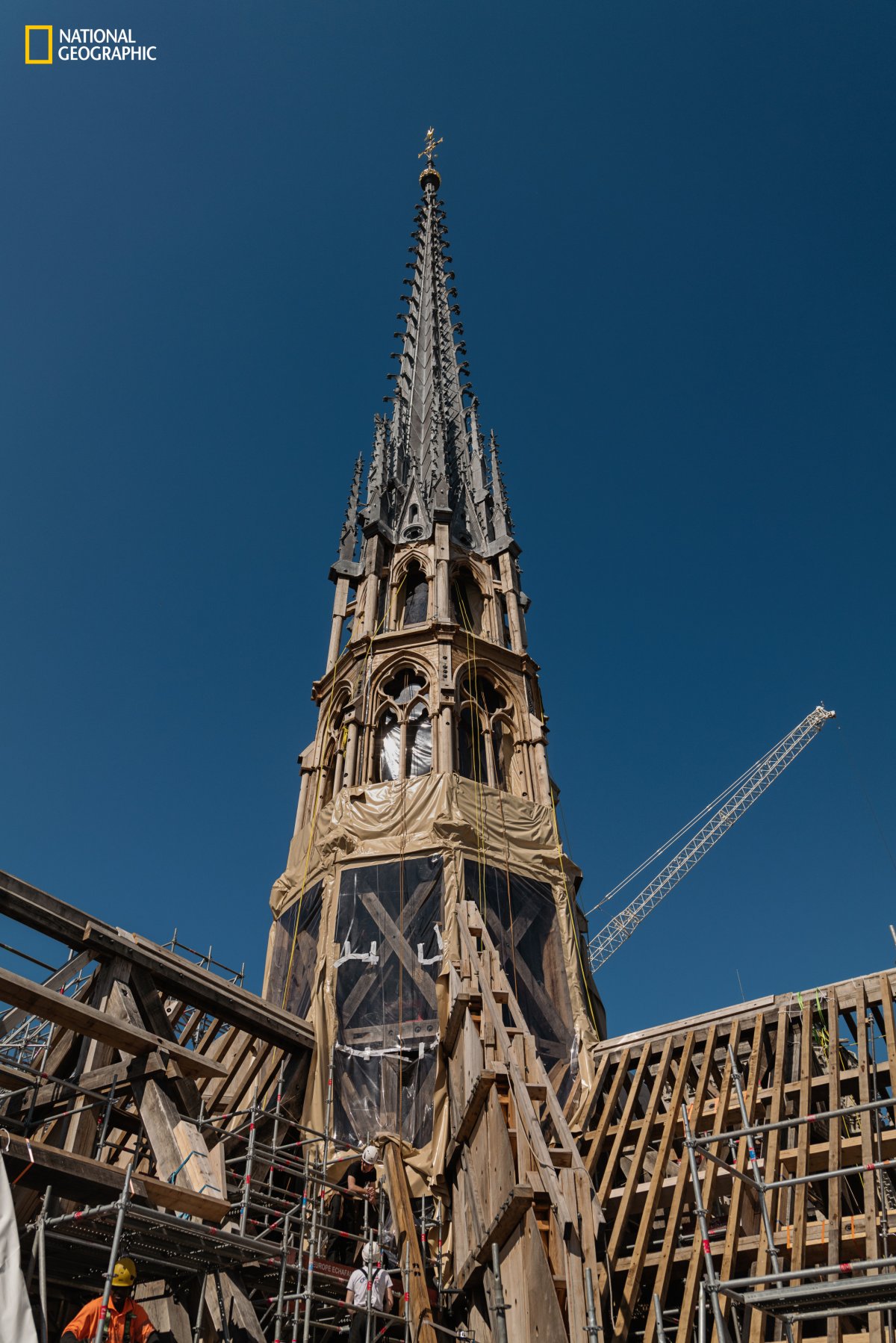
Since the fire, a team of highly skilled experts have worked tirelessly to restore the cathedral to its former glory. After the debris was cleared, the damaged parts of the cathedral were slowly rebuilt, with authentic materials and traditional methods being used to preserve the Gothic craftsmanship. The 13th-century roof beams in particular were replicated using hand-hewn oak timber.
"The framework was 800 years old. It's gone. But I think that if we rework it the way it was worked, in the same manner and with the same materials, the message can be transmitted," François Calame, an ethnologist and carpenter who founded a group called Carpenters Without Borders, told National Geographic. "You'll be able to feel it."
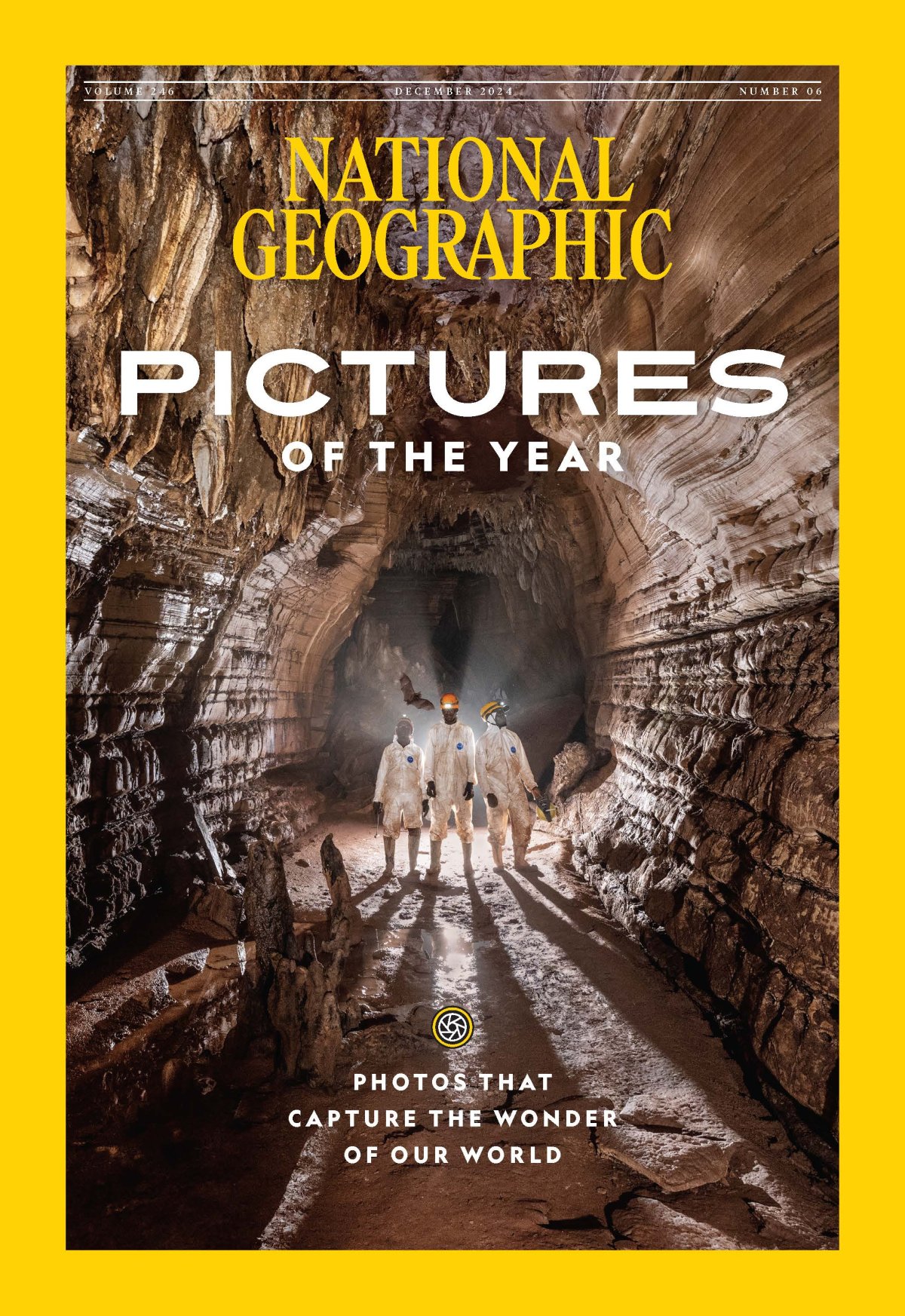
For more on National Geographic's coverage of Notre Dame, visit: natgeo.com/
Do you have a tip on a science story that Newsweek should be covering? Do you have a question about Notre Dame? Let us know via science@newsweek.com.

.webp)












)





 English (US) ·
English (US) ·